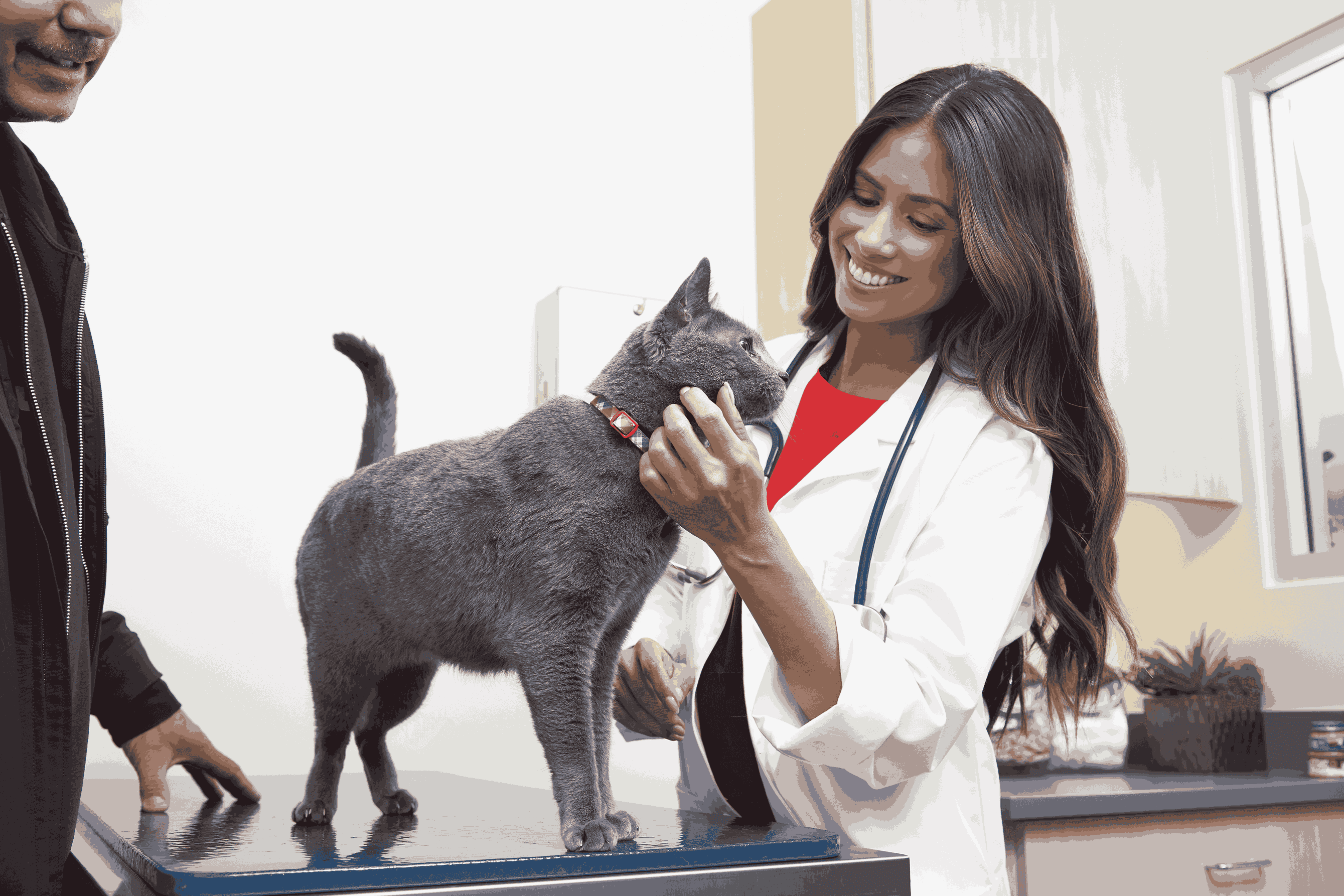Rheumatoid Arthritis in Dogs
Rheumatoid Arthritis, Immune-Mediated Polyarthritis

SUMMARY OF CONTENT
SEVERITY:
-
 Requires a diagnosis by a veterinarian
Requires a diagnosis by a veterinarian -
 No resolution, this is a chronic problem that usually requires lifelong treatment
No resolution, this is a chronic problem that usually requires lifelong treatment -
 Treatable by a veterinarian, by pet parent
Treatable by a veterinarian, by pet parent -
 No known prevention
No known prevention -
 Transmission is not possible between animals or from animals to people
Transmission is not possible between animals or from animals to people -
 Diagnosis requires a physical examination, blood tests, radiographs (x-rays), synovial (joint) fluid analysis
Diagnosis requires a physical examination, blood tests, radiographs (x-rays), synovial (joint) fluid analysis
VERY COMMON IN
Symptoms & Signs
A dog with rheumatoid arthritis generally has multiple joints affected. The animal is usually lame, limping or showing other signs of walking difficulty, but not always. The lameness may be mild or very severe to the point where the animal cannot walk. Sometimes the lameness shifts from leg to leg. In some cases, the lameness comes on suddenly and the dog also has a fever and loss of appetite. At other times, the only sign of rheumatoid arthritis is stiffness. The joints affected are swollen and painful. If the lameness has gone on for some time, there may be loss of muscle in that limb (muscle atrophy). Some dogs will have other body systems affected as well as the joints. Some dogs with rheumatoid arthritis also have kidney disease, enlarged lymph nodes, tonsillitis, and pneumonia.
Diagnosis
The history and physical exam often lead a veterinarian to suspect rheumatoid arthritis. Radiographs (x-rays) are taken and typically show the loss of bone - the bone often appears like holes have been punched in it. The joint surfaces are often irregular and bony spurs coming off of the bone are often seen. A special blood test can be done to look for the rheumatoid factor. Unfortunately, rheumatoid factor is sometimes present in dogs without rheumatoid arthritis, and not all dogs with rheumatoid arthritis test positive for the factor. The synovial fluid may be analyzed and shows characteristic changes. Cells involved in inflammation are present in large numbers, the fluid is usually cloudy and of a thinner consistency than normal. Biopsies of the tissues within the joint can be made and show characteristic changes.
Causation
Rheumatoid arthritis is an immune-mediated disease. This means it is caused by an overreaction of the immune system. A normal immune system reacts when the body identifies a foreign protein such as proteins on the outside of bacteria. This foreign material which invokes the immune response is called an antigen. The body can react to the antigen by producing protein molecules (antibodies) which bind the antigen. The combination of the antibody bound or attached to the antigen is called an immune complex. In rheumatoid arthritis the body mistakes some of its own protein for foreign protein. It then makes antibodies against its own protein. These unique antibodies are collectively called 'rheumatoid factor.' The antibodies and protein form immune complexes, which are then deposited in the joint. These complexes trigger a process called inflammation, which is how the body reacts to injury. In the case of rheumatoid arthritis, the body tries to rid itself of the injurious immune complexes, but manages to only create more damage to the joint. The process then becomes self-perpetuating. Eventually, the cartilage and even the bone in the joint are worn away. The exact reason for this abnormal immune response in rheumatoid arthritis is not known.
Treatments
AT-HOME CARE
SUPPORTIVE CARE
MEDICATIONS
MEDICAL PROCEDURES
SURGERY
SPECIALISTS
Cost Of Treatment
Diagnosis and treatment vary greatly. Expect to spend at least $500 and $1,000 on tests to diagnose the condition. Long term management costs depend on the severity of the condition, medications used and the size of the dog being treated.
Recovery
At this point, rheumatoid arthritis cannot be cured. The long-term outlook for dogs with rheumatoid arthritis is one of trying to control the signs and prevent further injury to the joint.
Monitoring
Careful monitoring of pets on immunosuppressive drugs is important. They will be more prone to developing infections, and some of these drugs have toxic side effects. The veterinarian will adjust medicine dosages depending on the patient’s response. Rheumatoid arthritis can relapse if medications are tapered too quickly. Frequent follow up and communication with the veterinarian is vital so the correct medication and dosage is used.
Prevention
There is no way to prevent the disease from occurring.
Disclaimer
The information contained on this page is for educational purposes only. Treatment should only be provided under the advice of a veterinarian who has examined your pet under the laws applicable to your state of residence.
Questions about Rheumatoid Arthritis in Dogs

Two Easy Ways to Start Earning Rewards!
Become a member today!Members-only pricing and offers, personalized care notifications, Vital Care points back on every purchase and more!Become a credit card member today!
Earn 2X Pals Rewards points at Petco
when you use Petco Pay!APPLY NOWLearn More About Petco Pay Benefits






